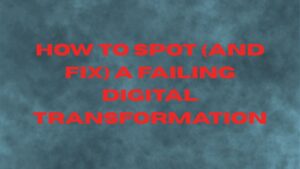For many of our mid-market and larger enterprises, conducting an evaluation of SAP S/4HANA vs. Oracle Cloud is an important order of business for a CIO or IT Director.
There is no one-size-fits-all recommendation, so it is important to understand the tradeoffs of each solution. Certain organizations will find SAP to be a better fit, while others may lean toward Oracle. Still others may find that something other than one of these two products is the best fit, such as Microsoft Dynamics 365, Infor, or other ERP software.
Here are four criteria that we often see as the ultimate drivers for SAP vs. Oracle evaluations:
Table of Contents
ToggleFlexibility vs. Scale
As a general rule of thumb, Oracle tends to offer a bit more flexibility than SAP. SAP, on the other hand, tends to fit better with organizations that value scale and efficiency over flexibility.
For example, consider a multi-national organization that has grown largely through acquisition and organic growth in multiple markets. This organization is likely to have disparate systems and business processes, so its strategy may be to standardize its operating model across its global locations to optimize efficiency and reduce costs. In this case, SAP may be a better fit.
Or, consider a multi-national organization that has also growth through acquisition and organic growth. In this example, however, the company values flexibility to provide better service to customers and to drive top-line revenue growth. The company may also desire standardization, but maybe not as much it needs flexibility. In this case, Oracle may be the better fit.
Both Oracle and SAP provide a certain amount flexibility and scale. However, SAP tends to have a slight edge in the area of standardization, while Oracle has a slight edge in flexibility.
Implementation Time, Cost, Risk, and Business Benefits
Like any ERP software in the market, both systems have examples of implementations as well as resounding successes. The average implementation time to implement is slightly longer for Oracle, but this duration is less predictable for SAP projects.
According to research that I’ve conducted over the years, SAP and Oracle generally have comparable average implementation times and costs. We have found that an implementing company’s complexity, diversity of operations, and general decisions made during an implementation project have a greater impact on time, cost, and risk than the software itself.
(Note: the video below was recorded while I was still with Panorama Consulting. Please disregard the outdated contact information and web addresses in the video).
SAP S/4HANA and Oracle Cloud Adoption
Both systems are struggling in this area. Plenty of organizations use SAP or Oracle – especially among Fortune 1000 organizations – but relatively few have successfully implemented either of these new flagship products. This may make it difficult to identify good case studies and references for organizations similar to yours.
SAP has the slight edge over Oracle in recent purchases of ERP software, but it will take time to evaluate the success of those implementations. The good news is that there are waves of organizations completing their implementations as we speak. This challenge should be short-lived as time goes by.
Industry functionality and business benefits
This is another evaluation criterion that involves tradeoffs. On one hand, research shows that SAP delivers more tangible business benefits. On the other hand, that same research shows that Oracle delivers more in the way of functionality leveraged.
In general, I’ve found over the last 20 years that SAP’s solutions can be a bit harder to learn and fully exploit. While short-term benefits might be compromised, those benefits often exceed those of Oracle solutions in the long-term.
The key is to assess both products in the context of business needs that are unique to your industry and/or your business. This is the best way to evaluate how the two will compare as part of an independent ERP software evaluation process
Business Intelligence and Analytics
While both products offer business intelligence and analytics beyond many other systems, Oracle’s flexibility can be an advantage when defining different ways of measuring your business. On the other hand, SAP’s HANA in-memory offering provides speed, performance, and real-time visibility that many clients feel is superior to Oracle.
So, which is the right solution for me?
Please note that these are broad generalizations based on our client experience. Each organization may come to a different conclusion, depending on its unique needs.
In general, both solutions have their own strengths, weaknesses, and tradeoffs. I can’t give a good recommendation of one over the other without understanding a client’s unique needs, priorities, and culture. These criteria are just a few of the ways that you will be able to differentiate the two as you evaluate potential systems in the marketplace.
Learn more by downloading our white paper 20 Lessons from 1,000+ ERP Implementations Over 20 Years.





